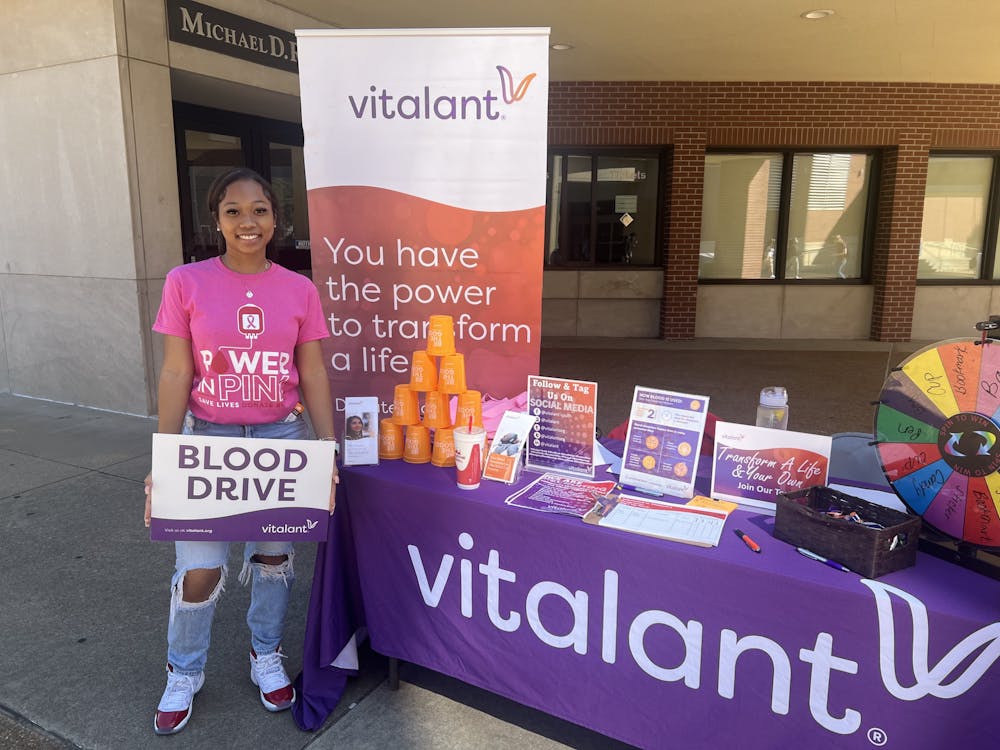Blood is one of the most essential substances needed to maintain the healthcare system in the United States, and there is a significant shortage of it. The American Red Cross declared a blood shortage on Sept. 11, and the crisis is ongoing - since early August, the American Red Cross has been in desperate need of blood from across the country to relieve the deficiency. According to data gathered by the American Red Cross, blood donations have been down 25% nationwide and 50% in Memphis, as reported by Vitalant.
To help in this effort, Vitalant has created a campaign to increase blood donations on college campuses. Vitalant is a local organization that has been hosting blood drives on campus over the past several months in order to help feed this constant need for blood. Vitalant visits campus every couple of months to encourage and give students an opportunity to donate blood.
“I’ve just always donated blood,” said Stacy, a junior legal studies major.
This is not the case for many students, however. Some cite a fear of needles as reason enough to not contribute to the cause. There are also health conditions that prevent individuals from donating blood, which include anemia, being underweight and being HIV-positive. In 2021, 6,550 people were living with HIV in Shelby County.
Yet, these have always been factors in blood donation. So why is the shortage of blood so prominent this year? The organizers of the event cited that many of their previous donors were older and are now ineligible to donate because of various health conditions, such as cancer. Another much more prominent reason is some blood drives that were once convenient to donate to ended during the COVID-19 pandemic. Many locations where blood drives were held, such as schools and churches, were shut down, and when they reopened, they didn’t resume their donation drives. COVID-19 also caused some to lose trust in the U.S. healthcare system, while others are simply unaware that there is a national shortage.
‘’Blood is something widely needed. A lot of my relatives need blood,‘’ said Ratnesh, a master’s student in healthcare administration. “I want to talk to people and figure out how they feel about the healthcare system.”
Vitalant’s mission is to bring awareness to this increasingly critical situation. From their frequent visits to college campuses, Vitalant has observed that talking to students is an effective method of getting them to donate blood.
“I had not originally planned on giving blood,” said Jerimiah, a junior health studies major. “I was accompanying my friend Valeria, but after learning about the need for blood donations from the informational pamphlets, I agreed to participate, and they put my name in the system.”
According to Vitalant, blood donation saves three lives per donation. Additionally, blood and plasma that is paid for cannot be used in a hospital setting, only for lab or research purposes. The need for blood is a daily occurrence, as every day in the U.S., patients in hospitals, surgical centers and emergency treatment facilities need approximately 29,000 units of red blood cells, 5,000 units of platelets and 6,500 units of plasma.






